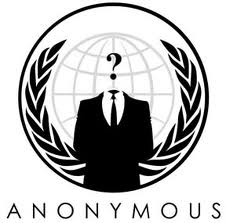Almost two and a half years ago, on November 28th,
2012, the world was rocked. Assisted by Army Private Bradley Manning, a rogue
computer activist organization known as Wikileaks, released more than 250,000
diplomatic cables—the single largest contemporary, unauthorized release of
information to date. The world panicked. Suddenly you could anyone with a
laptop and decent Wi-Fi could learn that China was considering decreasing
support to North Korea, see that the U.S. military had committed atrocities
against Afghan civilians, learn everything that the government had strived so
diligently to protect.
 |
| Wikileaks effort to increase transparency in governemnt motivated them to release the diplomatic cables |
The Problem
Amidst the confusion, embarrassment and hasty apologies, the
greatest danger wasn’t in affect foreign policy, but in the lives of informants
overseas. In Open Secrets, a New York Times compilation and analysis of
Wikileaks cables, they expound: “Wikileaks found reports that gave the names or
other identifying features of dozens of Afghan informants, potential defectors
and others who were cooperating with American and NATO troops.” They go on:
“the 75,000 documents Wikileaks put online provide information about possible
informants, like their villages and in some cases their fathers’ names.” This
wild breach in confidentiality shattered illusions about U.S. security, and
even though this aspect was not widely publicized, was by far the most
dangerous aspect of the cable releases.
What happened
 |
| Julian Assange is the figurehead for the Wikileaks organization. Given the anonymous nature of the publications, it became very hard to charge him |
There were some good things that came from Wikileaks. The
government, seeing the trouble another leak could do, increased security and
streamlined their confidentiality process. Previous to Wikileaks, the
government had designated 183, 224 new secrets, an increase of 75% from 105,
163 in 1996. The year before the cable release, the Government Accountability
Office also found that the Pentagon had given highest security clearances to
some 630,000 people, often handing them out with no background checks or
screening. In some ways, this was helpful when Wikileaks released the
documents, because half of the government’s hoarded secrets were outdated and
useless pieces of information. After this leak, however, the government
released more inessential documents to the public, engendering faith in the
system, and narrowed down the pool of government secrets, making them easier to
protect and increasing the security overall.
The Future
 |
| The group known as "Anonymous" was a successor to Wikileaks |
But, does this really change
anything? Sure the government tightened its belt and put on its game face for a
few months but will it stick? Many people don’t think so. It has been referred
to as a security pendulum in the United States, the level of openness in the
government and how it changes based on events. Take for instance, the tight
safeguards in place before the events of 9-11. Limited communication between
the FBI and CIA to enhance security counterproductively led to a lack of total
information that ultimately made it impossible for them to prevent the
destruction of the World Trade Center. After this catastrophe, the government
lessened the precautions and opened up communications. Nearly a decade later,
these actions made it possible for a simple private to copy and send hundreds
of thousands of top-secret cables. The real question is then, what will be the
next disaster to strike and change the government’s policy once more. Finding
an equilibrium that does not enact stifling regulations on government
communications but still provides ample security measures will be the key.
The World
 |
| Lulzsec, another successor, who worked to infiltrate and access government and company secrets |
However, the government is not the only entity that is in
danger any longer. As Wikileaks gained power and influence, other “hacktivist”
organizations—Lulzsec, Anonymous, and AntiSec—were formed, and they did not
just target the government. Thousands of cyber attacks have since taken place,
including the compromise of user accounts from Sony Pictures, shutting down the
websites of both Interpol and the CIA, and acts that compromised the cyber networks
of Visa and MasterCard. Hacktivist actions were, in fact, the leading cause for compromised information in 2011. These actions are continuous and nonstop against those
who stand in objection to the aims of these groups. As the danger spreads to
citizens, the increased safety measures must be widespread and effective and
maybe in years to come the Wikileaks’ War will not mark when privacy and
security stopped, but when they truly began.
No comments:
Post a Comment